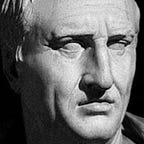Against Infinite Incentives
3 min readFeb 23, 2021
The most chilling aspect of Max Weber’s analysis of industrialization is the revelation (obvious once noted) that it began with an empirical failure of classical economics. Specifically, when industrialists tried to increase the supply of labor with higher wages, the increased demand — rather than stimulating supply — depressed it. Workers preferred to keep their incomes stable and work less as wages rose. Correcting this design flaw in human nature, required — on Weber’s account — a sort of divine intervention. Specifically, Protestantism tied work, whatever its worldly incentives, to eternal salvation…
